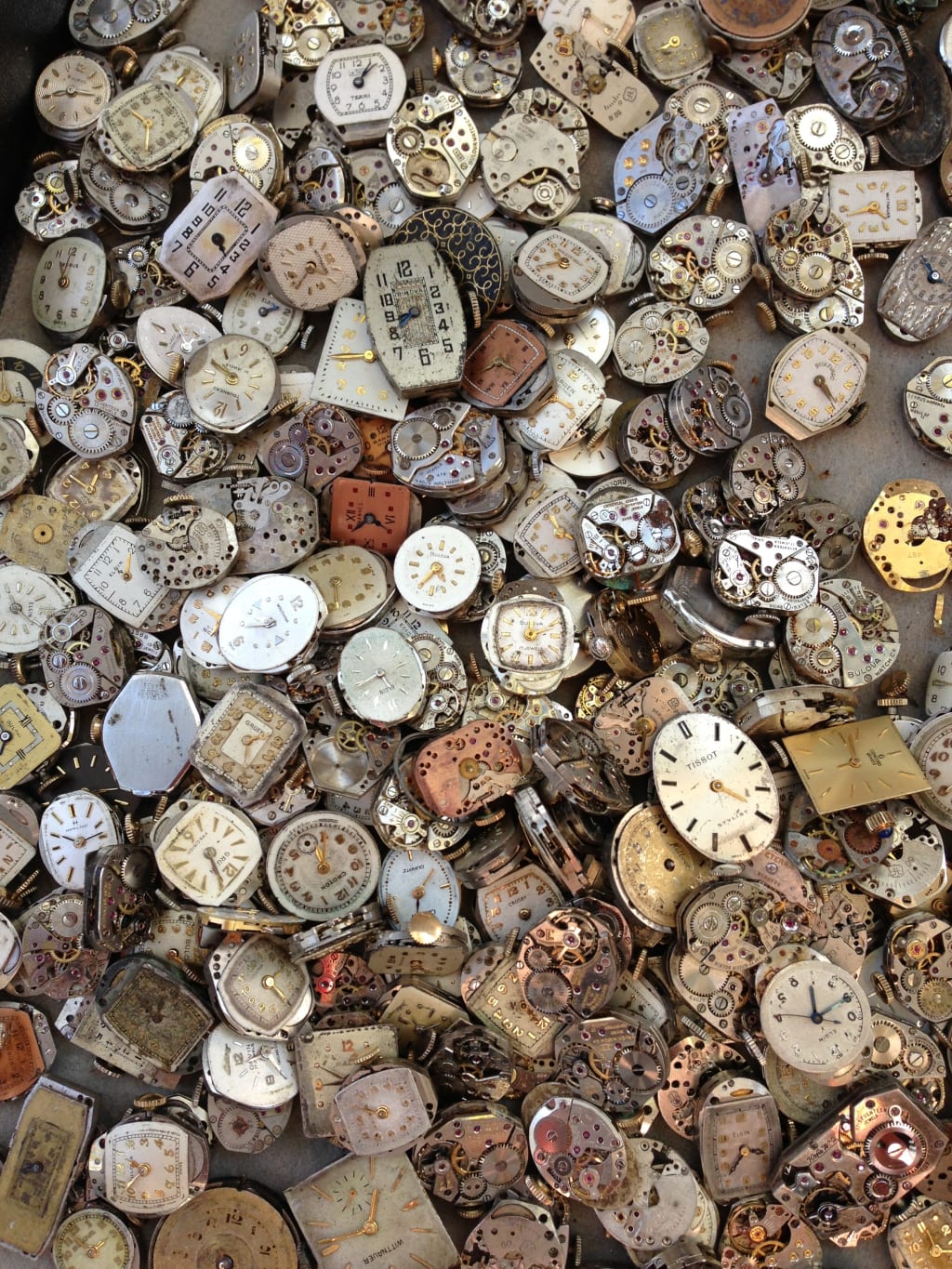How to Effectively Write a Time Travel Novel: Part II
Time is a valuable thing. Treat it as such.

The Don'ts that Could Possibly Ruin Your Time Travel Novel:
On the last article we talked about the five tips that could help you write a better time travel novel. Today we will be talking about what not to do.
Now let's jump right in.
Why am I writing a time travel story?
In the previous article, we talked a little bit about how other authors use time travel novels/short stories to explain their views on a specific subject. Is that what you want to do? Do you want to express your opinion and impact people by helping them visualize a certain future or how the past affected our lives? If you are, time travel is the perfect genre for you. Now, if you are or want to write time travel for the sake of it, well it's not recommended since your story will become vague. Let's be honest, if time travel were to be real, would you break the space-time continuum and endanger our reality just for the sake of it? No, right? But does this mean you can't write one for the sake of it? Of course not, there are always exceptions. Most of the time, writers use romance to write a time travel story. Take a look at these movies: The Time Traveler's Wife, The Lake House, and Somewhere in Time, to mention a few. All these are great movies with an intriguing story line, but their main focus wasn't the science behind time traveling—it was “love.”( It sound cheesy, I know.) In fact they don't spend much time, sometimes any, explaining the why's, what's, or how’s. Another thing you can do is write a short story. That way you won't have to elaborate on the science behind it and focus on what you really want.
Character's Knowledge
We can all agree that when something important needs to be done and lives are at stake, we don't assigned that job to just anyone, right? Well, the same goes to your character. If your character is going to time travel on purpose, make him have knowledge, whether scientifically or historical—maybe a little bit of both. He doesn't need to be a genius. All your character needs, sometimes, is a little common sense. Make him know things that are simple—like for example if he changes something, even by accident, there will be consequences.
Consequences
Don’t skip this! Please! I have often come across a handful of movies, series, and novels that have an amazing story but... they forget that there are major consequences if you play around with father time. You can’t and you shouldn’t mess with time and change it without consequences. Everything has happened just the way it was supposed to, just for you to be reading this. If you go back and change the slightest of detail of time, you can create a domino effect. It will begin with something small but at the end you will have a big mess.
Be realistic.
Doesn’t matter where your character is going—if he comes from the past to the present, from the present to the past or future, keep in mind he/she will be seeing things for the first time. Make the reader feel that. Explain things in a way only a first-timer would explain it. Your readers will appreciate it. If your character is going to the past, think a little further. Don’t stick just to what history classes had taught you. Try to picture yourself there. We have seen characters with high expectations and then having them be disappointed, but what about the other way around? Low expectations and then getting surprised by the truth. That would definitely be a classic "don’t judge a book by its cover" situation.
Avoid the bloopers.
I learned this one from my non reader/writer husband. I’m currently writing my own time travel novel, which is going to be connected to a series of short stories and other novels (basically I have created a whole new universe). So I talk about all my ideas with him. I tell him how the story develops, who are the characters, the plot, and all the in-between, and he had called out a handful of mistakes (bloopers, like he says) I was about to make. For example, he would go on and say, “Uh, Blooper! If you have him do that (whatever I have my do or go) how can this other thing happen, or when does he do that exactly, it doesn’t make sense.” Turns out he is right every single time. My point, whatever method that you use, make sure every detail is tied together, to avoid leaving loose ends, or have your character doing things or going places that don’t have a significant impact on the story. You don’t want your reader saying, "Blooper! That doesn’t go there," or "Wait! What happened with that other thing?" Trust me, readers never forget that thing you wrote but never explained.
Do not rush it.
I think this is the most important one. Time travel writing is going to take a lot of your time (no pun intended), especially if you want to make it accurate and exceptional. Like I explained before, all details matter. Even if it is a short story, you are going to find yourself going back and forward just to make it through the first jump. My advice for you is to take your time. You want to make sure that your story flows no matter how complicated it may get.
“Remember that you are writing about the unknown, the unimaginable, the unthinkable and the possibilities. It will take you time to get there but it will be worth it.”
Thank you for reading! I hope this tips can help your writing process.
Happy writing!
About the Creator
Mel Vitademar
Wife, writer and accidental nomad.






Comments
There are no comments for this story
Be the first to respond and start the conversation.